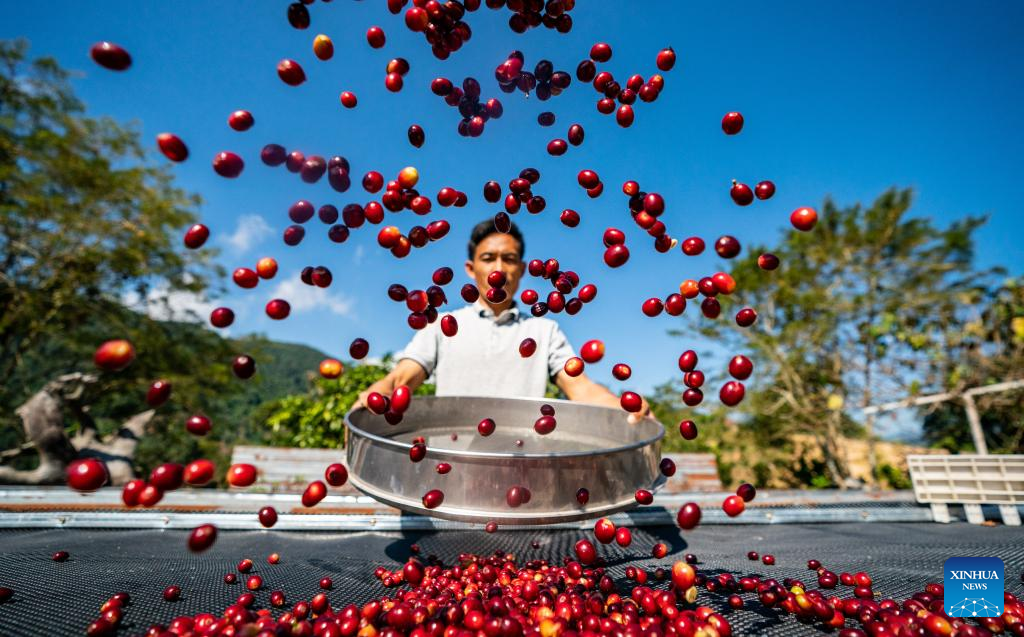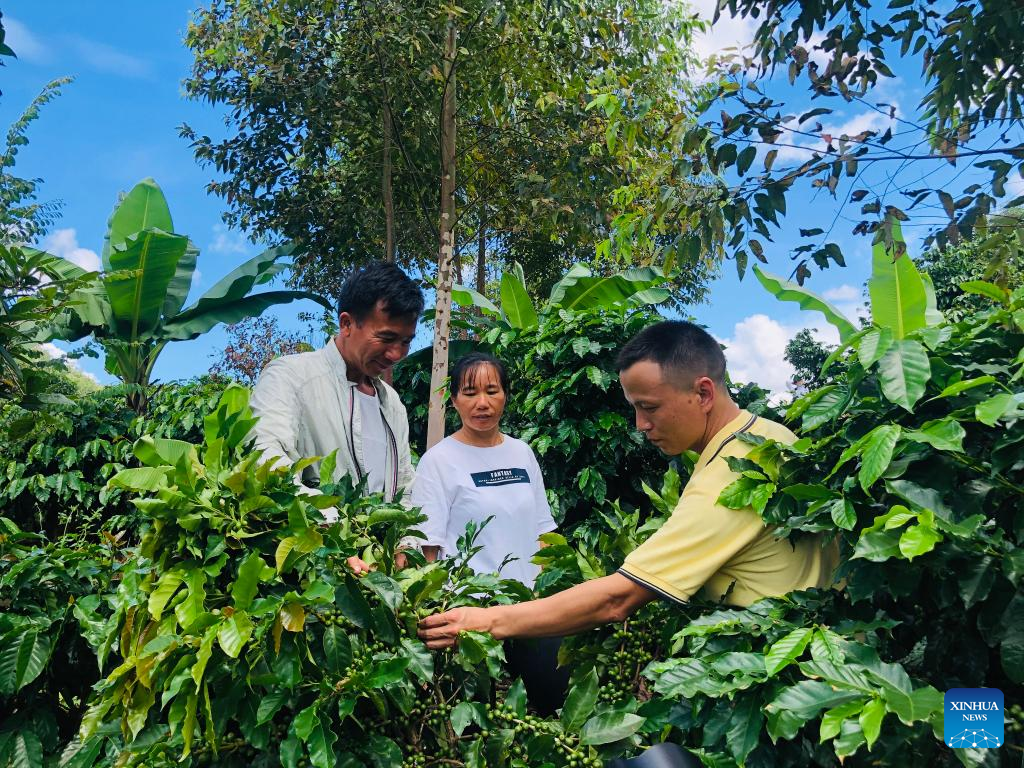
A coffee farmer airs coffee cherries in Pu'er, southwest China's Yunnan Province, Nov. 16, 2022.
During mid-June, Pu'er City in southwest China's Yunnan Province is immersed in the captivating aroma of coffee blossoms, and this period holds immense significance for the growth of coffee beans. (Xinhua/Jiang Wenyao)
KUNMING, June 16 (Xinhua) -- During mid-June, Pu'er City in southwest China's Yunnan Province is immersed in the captivating aroma of coffee blossoms, and this period holds immense significance for the growth of coffee beans.
Nicknamed "coffee doctor" among local coffee growers, Wang Wandong, 39, finds himself traversing great distances during the rainy season to visit coffee plantations across the city. During these visits, he collects soil samples and raises awareness among coffee farmers on effective disease and pest control techniques.
Having spent the last decade devoted to Yunnan's coffee industry, Wang has personally witnessed its remarkable transformation.
After graduating from Yunnan Agricultural University in 2006, Wang was involved in research on coffee planting and production at Yunnan Academy of Agricultural Sciences for nearly seven years.
"After I started working, I discovered that Yunnan has so much coffee. However, I also noticed a significant lack of dedicated research in the coffee industry here," Wang said, adding that this realization served as a catalyst for his unwavering commitment to coffee research and development.
Wang said he still remembers his first visit to coffee plantations, where he observed a stark disparity in the farming practices among growers, leading to inconsistencies in the quality of coffee.
In 2012,Starbucks established the company's first coffee bean plantation support center in Asia in Pu'er.
Joining the center as an agronomist, Wang wholeheartedly dedicated himself to imparting scientific methods to coffee farmers to help them cultivate high-quality coffee.
Through his extensive expertise and genuine demeanor, he earned the trust and respect of local coffee growers. Today, whenever coffee growers encounter any coffee-related concerns or need advice, they turn to "Coffee doctor" Wang without hesitation.
Over the course of the last decade, Wang covered some 500,000 km, driving through rugged mountains and steep ridges to help coffee growers.
Wang firmly believes that if coffee beans are nurtured with care, they will reward cultivators with exceptional quality.
To date, the coffee bean plantation support center has provided free training to over 32,000 people. An increasing number of people with scientific expertise in coffee cultivation have joined the coffee plantation industry in Yunnan and it has continued to flourish.
In recent years, the province has been continuously promoting the high-quality development of the coffee industry. Apart from being a major producer of coffee raw materials, the province also focuses on coffee processing, coffee tourism and coffee trade, as well as building a strong coffee culture.
Currently, over 95 percent of coffee in China is produced in Yunnan, with over 60 percent of Yunnan's coffee coming from Pu'er. In 2022, the coffee plantation area in Pu'er reached 45,267 hectares, and the output value surpassed 5 billion yuan (about 696.67 million U.S. dollars).
Wang harbors a long-term aspiration to establish a coffee museum three decades from now. He envisions capturing every intricate detail of his remarkable journey alongside coffee farmers, and sharing the captivating stories behind Yunnan coffee with the world. ■

This undated file photo shows Wang Wandong (R), nicknamed "coffee doctor", and coffee farmer Cai Qingkai (L) working in a coffee bean field in Pu'er, southwest China's Yunnan Province.
During mid-June, Pu'er City in southwest China's Yunnan Province is immersed in the captivating aroma of coffee blossoms, and this period holds immense significance for the growth of coffee beans.(Xinhua)



